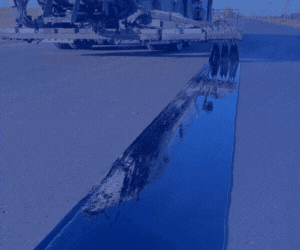Even as a young man, Fred Fehsenfeld, Sr. was ready—to go wherever he was needed and to do whatever needed to be done.
“On my eighteenth birthday I enlisted in the Army Air Corps,” recalls Fred. “It was 1942 in the middle of World War II and I was a sophomore at Purdue University studying mechanical engineering. I had always wanted to fly and at Purdue I had gotten some experience flying gliders. We hooked onto a Model A, took off and caught the air thermals.
“When I was age 20, the Air Corps assigned me to a famous fighter group of P51s and P47s. What we did was support General Patton’s 3rd Army as he marched across Germany. We followed Patton and knocked out tanks, bridges and trains. I managed to survive the war, although half of the pilots I served with were killed.”
Fred flew 86 missions and was awarded the Air Medal, three Silver Clusters and three Silver Stars.
Getting Started in Business
After the war, Fred came back to Purdue, graduated in 1948, and began working at a local refinery. That particular refinery was the first in the area with a graphic instrument panel. The idea for the panel came from the atomic power plant in Oak Ridge, Tennessee.
After three years at the refinery, Fred`s father asked him to come to work for him. His father owned a petroleum marketing company and a trucking business, hauling No. 6 fuel oil. “We had a lot of trucks and we needed something for them to do in the summer,” says Fred. “So we started selling fuel oil to contractors and hauling cutback asphalt to job sites.”
Fred then manufactured some portable storage tanks to facilitate delivery to road-oil jobs. His company was the first to haul asphalt cement in insulated trucks in Indiana. After expanding the business by delivering asphalt to contractors, Fred spent some time as a broker for Chevron Asphalt. He next purchased Asphalt Materials Inc., an Indiana company that manufactured emulsions.
Then he convinced Rock Island Refinery, an existing refining company in Indianapolis, to produce an asphalt flux, which he converted to roofing and paving asphalts. The marketing of these asphalt products was already well established. Later, he bought the Laketon Refinery in northern Indiana. The company today markets asphalt products in Iowa, Illinois, Michigan, Ohio, West Virginia, Kentucky, Louisiana and Texas.
Paving Business
Not long after, Fred began picking up some aggregate operations. “As you know, haul price with aggregate operations is everything,” says Fred. “The contractor with an aggregate operation closest to the job site usually gets the paving contract.” After acquiring a couple of aggregate operations, Fred got into the local paving business. Fred’s business expanded when one of his big customer/contractors decided to sell his company. That business became the largest paving contractor in Indiana.
Heritage Research
“I developed the Heritage Research Center, with all its modern asphalt laboratory equipment, to do research into the positive aspects of asphalt,” says Fred. From this research came the concept of laying a dense-graded asphalt mixture on lime-treated subgrade, followed by an open-graded base. This was capped by a conventional binder mix and followed by an SMA surface course. “I believe our construction company laid the first SMA surface in the USA,” adds Fred.
Then in 1972 Heritage branched into the environmental research business. Fred’s environmental interests evolved well beyond the asphalt industry. “We looked at many problems and we looked at some bad situations,” says Fred. “We took toxic wastes from copper circuit boards and detoxified them and created a micronutrient for pigs and chickens. We also solved some enormous environmental problems facing the steel industry.”
Worldwide Contributions
More than thirty years later, Heritage Laboratory is still doing research. “Nowadays we’re doing research in China. We’re helping the Chinese with road tests, with treated subgrade and open-graded mixes, with rubblization and asphalt overlays, and with field instrumentation measuring shear and pressure.”
Heritage’s involvement in advancing pavement technology is worldwide. They are installing measurement instrumentation on I-69 north of Indianapolis similar to what they are doing in China. Other Heritage work includes a project in Russian Siberia. Fred takes pride in a cold-mix job in Siberia that has performed superbly.
“We’ve had 19 years of researching asphalt fumes,” says Fred. “One of the things we’ve accomplished in this area is to provide the industry with a terrific health model. And our partners in Europe, especially Germany, have done some marvelous things in the arena of asphalt fumes.”
Quality Driven
Fred’s companies are driven by quality and he feels that contractors should be delivering good quality work consistently. To promote high quality work, Fred decided to start giving warranties for his company’s asphalt construction work. “We started by giving a one-year warranty, and then went to a five-year warranty,” says Fred.
“We were doing warranty-type work before warranties were used,” says Fred. He wanted to encourage contractors to do quality work and he wanted to promote quality asphalt work to discourage the use of concrete. Fred was confident that asphalt pavers could do good work long before Superpave appeared on the scene. “Because our company had a background in research,” says Fred, “we were comfortable with Superpave and specialty mixes before anyone else.”
Fred, his paving operations, and Heritage Research, have monthly meetings to make sure the right hand knows what the left hand is doing. “Openness at these meetings is a key thing,” says Fred. “Everybody can participate, present an idea or make a comment.”
Down the Road
Throughout the years, Fred has been interested in the American transportation network system. For many years he has promoted dedicated truck lanes, dedicated auto lanes and rapid rail systems in the interstate medians—for both passengers and freight. “The survival of our economy is dependent on this concept!” concludes Fred.
Fred and Charlie Potts, CEO of Heritage Construction and Materials, are working through the Governors’ Association and with AASHTO to promote an integrated transportation plan. Fred wants to develop a plan with the FHWA that is designed to promote national progress in transportation.
Fred M. Fehsenfeld, Sr. is Chairman of the Executive Committee of Asphalt Materials, Inc. He was Chairman of the Board of the Asphalt Institute in 1989.
Fred’s many contributions to the asphalt industry include:
- Leading major breakthroughs in the environmental area
- Developing and promoting warranties
- Finding, developing and promoting people to serve in the asphalt industry
- Promoting transportation initiatives—both in the United States and abroad.














